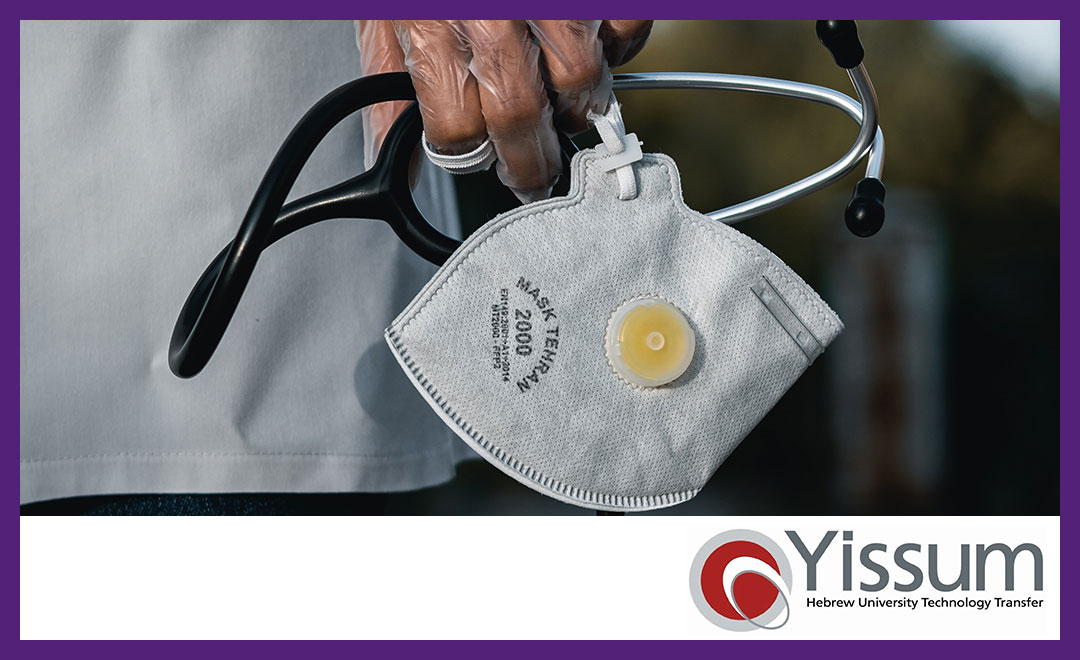
Researchers at the Hebrew University of Jerusalem have developed an injectable antibiotic with a new mode of action, which could have a significant impact on the morbidity rate for pandemics such as COVID-19, Yissum, the technology transfer company of the Hebrew University announced today.
Mupirocin, a highly effective topical antibiotic was re-formulated by Hebrew University researchers to allow for intravenous delivery, and in doing so they have created new properties to fight drug-resistant bacteria. According to some studies, close to 50% of COVID-19 deaths involved secondary bacterial infections.
According to the European Antibiotic Resistance Organization (AMR), 700,000 people die every year from resistant infections, and if no significant improvement is made in the field, that number will rise to 10 million by 2050. For patients in hospitals with weakened immune systems, such as those with COVID-19, the danger is acute. Moreover, the intensive use in antibiotics during this pandemic is expected to increase this problem even further.
Antibiotic resistance is one of the leading threats to global health, according to the World Health Organization and the US Centers for Disease Control. Prof. Yechezkel Barenholz, the chief researcher behind the study, said, “The ability to take an existing drug and alter the way it works can have a significant impact on the problem of antibiotic resistance and secondary bacterial infections related to COVID-19 and may pave the way for a new treatment regimen. We have had very strong results from relevant animal models, and are looking forward to moving into clinical trials with Nano-mupirocin (the nano-liposomal formulation of mupirocin), as we believe the potential of this discovery is immense.” A toxicity study conducted with Nano-mupirocin demonstrated a very good safety profile enabling human trials.
The innovative treatment, which was advanced through the use of artificial intelligence (AI), was chiefly developed by Prof. Barenholz, who heads the Laboratory of Membrane and Liposome Research at Hadassah Medical School and Dr. Ahuva Cern in collaboration with Prof. Amiram Goldblum, all of whom hail from the Hebrew University Faculty of Medicine. The research received support from the National Institute of Health (NIH).
“Our study demonstrates how nano-liposomes have enabled the creation of a novel injectable antibiotic, and how we have overcome the limitations of existing antibiotics by using nano-technology approaches,” said Dr. Cern. “This drug, if approved, fundamentally enhances arsenal of antibiotics available to treat resistant infections, including those associated with COVID-19.”
The Hebrew University researchers developed the treatment as part of a groundbreaking study conducted with their German colleagues at the Helmholtz Centre for Infection Research (HZI).
Prof. Barenholz, a world-renowned expert in liposome based drug development also played a leading role in developing Doxil, a chemotherapy drug based on nano-delivery used to fight cancer through which was commercialized by Yissum, the tech transfer company of the Hebrew University.
About Hebrew University
The Hebrew University of Jerusalem (HU) is Israel’s leading academic and research institution, serving 23,000 students from 80 countries. Founded in 1918 by visionaries including Albert Einstein and Sigmund Freud, HU is ranked among the world’s 100 leading universities. To date, HU faculty and alumni have won 8 Nobel Prizes, 1 Fields Medal and 1 Abel Prize. For more information, visit http://new.huji.ac.il/en.
About Yissum
Yissum is the technology transfer company of The Hebrew University of Jerusalem. Founded in 1964, it is the third company of its kind to be established and serves as a bridge between cutting-edge academic research and a global community of entrepreneurs, investors, and industry. Yissum’s mission is to benefit society by converting extraordinary innovations and transformational technologies into commercial solutions that address our most urgent global challenges. Yissum has registered over 10,000 patents covering 2,800 inventions; licensed over 900 technologies and has spun out more than 135 companies. Yissum’s business partners span the globe and include companies such as Boston Scientific, Google, ICL, Intel, Johnson & Johnson, Merck, Microsoft, Novartis and many more. For further information please visit www.yissum.co.il
